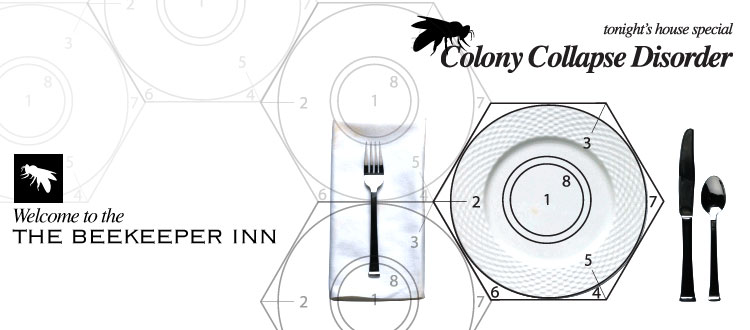 |
Concept
The plight of the worker bee is not an immediate, sharp, and palpable pain for most Americans.
The sting of gas prices, mortgage payments, a health care (or the lack thereof) is a pain more acute and unforgiving. Figuring out what’s for dinner is a daily challenge in and of itself.
The stock in men and women has increased with the 2008 Presidential Election looming in the not so far distance. Parties and politicians are hustling to seduce, convert, and bank faith, loyalty, and the vote. The issues – international, domestic, economic, and social – are more front and center than ever. Posture and stance have never mattered more. Not to spoil the proud (sparring not included) political process moment, but we are in, at, and hardly beyond war.
|
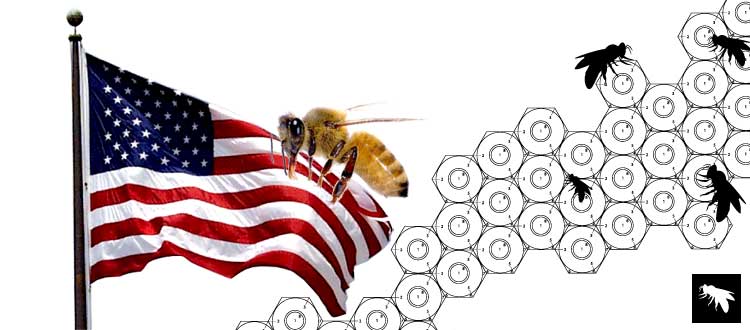 |
Back to the bee and what’s for dinner.
|
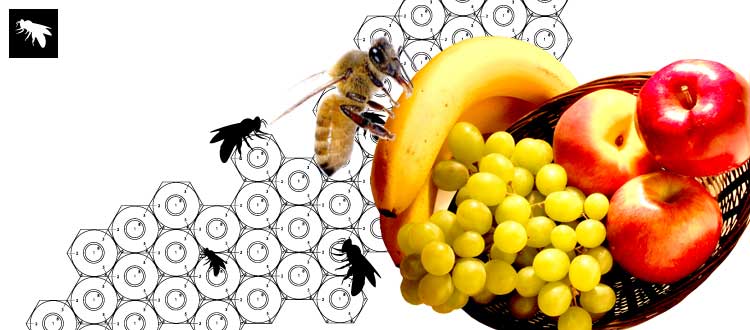 |
|
Colony Collapse Disorder (CCD) is a frightening and mysterious phenomenon. Worker bees from a hive or Western honeybee colony have all of a sudden disappeared. CCD was first documented in North America in 2006.
The root cause(s) are not yet known. There are plenty of theories circulating; some of the culprits include environmental stresses, pesticides, radiation from cell phones, genetically modified (GM) crops, malnutrition, and pathogens. To think of the effects in miniature scale when we are exposed to more and worse is sobering to say the least.
The characteristics of collapsed bee colony includes the total absence of adult bees in the colony where there is a small amount or zero accumulation of dead bees in or around the colonies, a capped brood (usually bees don’t leave the hive until the capped brood has hatched), and evidence of food – honey and bee pollen.
|
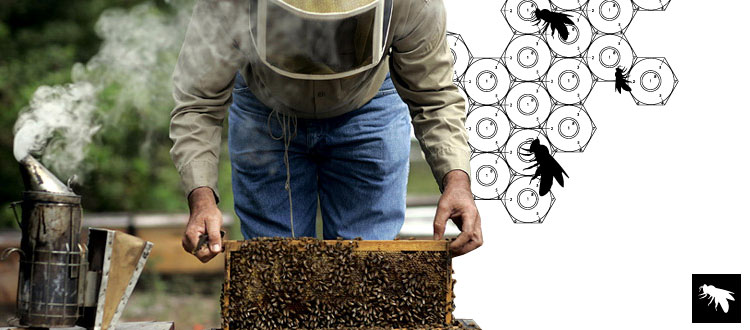
24 different states have reported a CCD case. How does that affect the bottom line? How does that affect me? To sum it up in nutshell, the California is not just a behemoth mass of celebrities and delegates, but it is an almond mine. Honeybees are the chief pollinator for almond crops that were valued at $1.5million in 2006. In 2000, the crops were solely dependent on the honeybee and the crop value was assessed at $15million.
30% of the crop types employ the honeybee as a predominant pollinator. Crops include almonds, peaches, soybeans, apples, pears, cherries, raspberries, blackberries, cranberries, watermelons, cantaloupes, cucumbers, and strawberries. The idea of fresh produce, fresh anything does more than whet the New England palate locked in the throes of a winter diet, it pulls at the heartstrings. Buying fresh, local, and organic produce is important for many individuals. In Boston, consumers have the luxury of choice. There is a viable market for healthy, organic and or local foods. WholeFoods, Trader Joes, and family-run farms and markets like Wilson Farms (Lexington), Russo’s (Watertown), and The Lookout Farm are just some of the examples of popular market alternatives to the more traditional grocery chains like Shaws and Stop and Shop. Markets are responding to their customers and helping with the recycling effort by selling reusable shopping bags at a very affordable price. When you see an individual walk by with an almost ‘trendy’ reusable shopping bag, you can help think about your own choices. Interesting.
Back to the bee.
The UDSA released a CCD Action Plan (July 2007) articulating their strategic approach to combating CCD. The plan will focus on survey and data collection, sample analysis, hypothesis-driven research, and preventive action.
Our hope is that enough awareness is generated to give the proper focus and funds to address CCD in a timely and strategic manner and that the rate of disappearance does not increase or that once the source is identified if it is indeed a pathogen that it mutates and affects other kinds of bees. In the mean time, beekeepers and farmers have taken the hit. Since 1971, there has been a dramatic decline in the number of colonies, which has forced beekeepers out of business.
Beekeepers are modern agro-gypsies migrating their colonies where the demand exists. Spring bees from South Carolina make the hike up north to Maine for blueberry pollination. Bee rentals are important for beekeepers and farmers. US crops would not yield current levels with native pollinators alone. Constant travel for the colonies may be yet another stress affecting the bees.
Back to the bee.
|
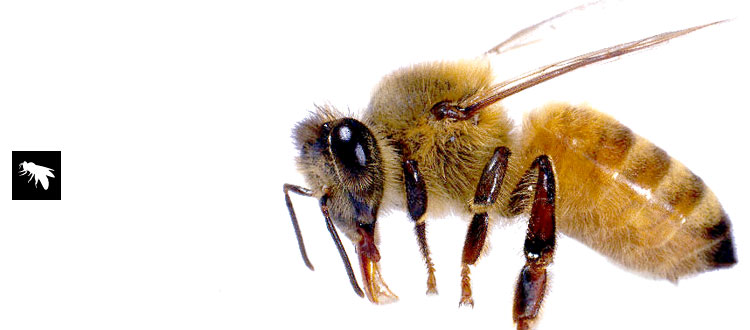
Origin of design elements.
To help raise much-needed awareness of Colony Collapse Disorder and get back to the bench out in the field and dive into the science. The Beekeeper’s Revenge shirt is dedicated to the bee, beekeeper, and farmer. We have earmarked 50% of the proceeds of the shirt going to help raise awareness on the issue. We have yet to find an organization to donate the proceeds to. If you have any leads, please let us know. We have been looking. We hope to spread the word. Show your support and spread the word. We must save the bees.
|
| ↵ back |









